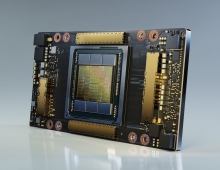
Intel, Microsoft Research and Duality Technologies Convene AI Community for Privacy Standards
Intel, Microsoft Research and Duality Technologies are bringing nearly 100 security, privacy and artificial intelligence (AI) community members together to create standards for homomorphic encryption (HE), which is emerging as a method to protect privacy in machine learning and cloud computing.
HE allows AI computation on encrypted data, enabling data scientists and researchers to gain valuable insights without decrypting or exposing the underlying data or models. This is particularly useful in instances where data may be sensitive – such as with medical or financial data.
The HE standards workshop will take place on Intel’s Santa Clara, California campus on Aug. 17, 2019.
As more data is collected and used to power AI systems, concerns about privacy are on the rise. As interest in privacy preserving methods for machine learning grows, it’s essential for standards to be debated and agreed upon by the community – spanning both business and academia.
“Microsoft has invested heavily in developing Homomorphic Encryption, including the release of Microsoft SEAL for commercial use, as a tool to protect enterprise and consumer privacy, while bringing the full power of ML algorithms to process data in the cloud,” said Kristin Lautner, partner research manager, Cryptography and Privacy Research Group, Microsoft. “The Standardization process for Homomorphic Encryption is a key step towards wider acceptance and adoption of this important new encryption tool by industry and governments world-wide. We are confident that the collaboration between Microsoft, Intel, and Duality Technologies on the 4th Homomorphic Encryption Standardization Workshop will accelerate the standardization process and decrease the time to commercial availability of this important privacy protection tool.”
Targeted at researchers, application developers, security practitioners and encryption experts, the full-day workshop will provide an introduction to HE, review usability for application developers and real-life applications, present the latest research, and include a group discussion on creating HE standards. For those interested but unable to attend, key takeaways will be available online after the workshop, in addition to an HE webinar series from Microsoft.
In 2018, Intel open-sourced HE-Transformer, allowing data scientists to develop neural networks on popular open-source frameworks and then easily deploy them to operate on encrypted data.





















